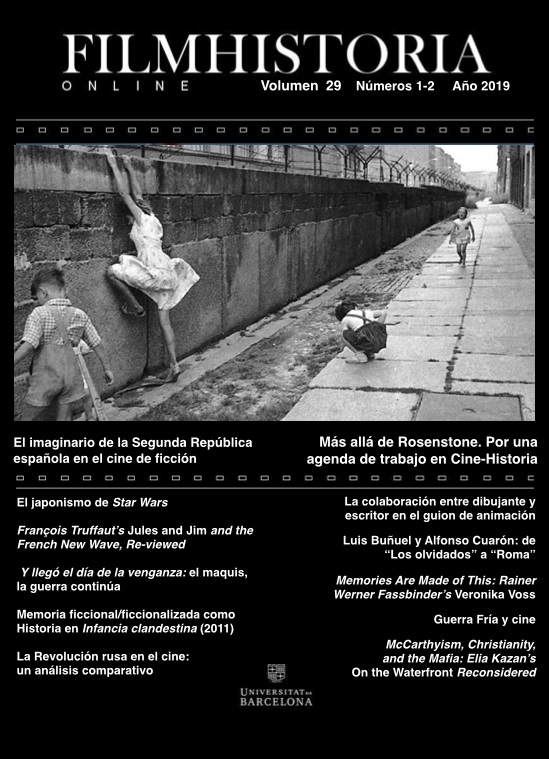François Truffaut’s Jules and Jim and the French New Wave, Re-viewed
DOI:
https://doi.org/10.1344/fh.2019.1-2.57-68Palabras clave:
François Truffaut, French film, New Wave, Jules and Jim, Henri-Pierre RochéResumen
Truffaut’s early protagonists, like many of those produced by the New Wave, were rebels or misfits who felt stifled by conventional social definitions. His early cinematic style was as anxious to rip chords as his characters were. Unlike Godard, Truffaut went on in his career to commit himself, not to continued experiment in film form or radical critique of visual imagery, but to formal themes like art and life, film and fiction, and art and education. This article reconsiders a film that embodies such themes, in addition to featuring characters who feel stifled by conventional social definitions: Jules and Jim.Descargas
Publicado
2020-01-22
Número
Sección
Ensayos
Licencia
El/la autor/a conserva los derechos. Creative Commons. Esta obra está sujeta a una licencia de: Reconocimiento-NoComercial-CompartirIgual
CC BY-NC-SA







